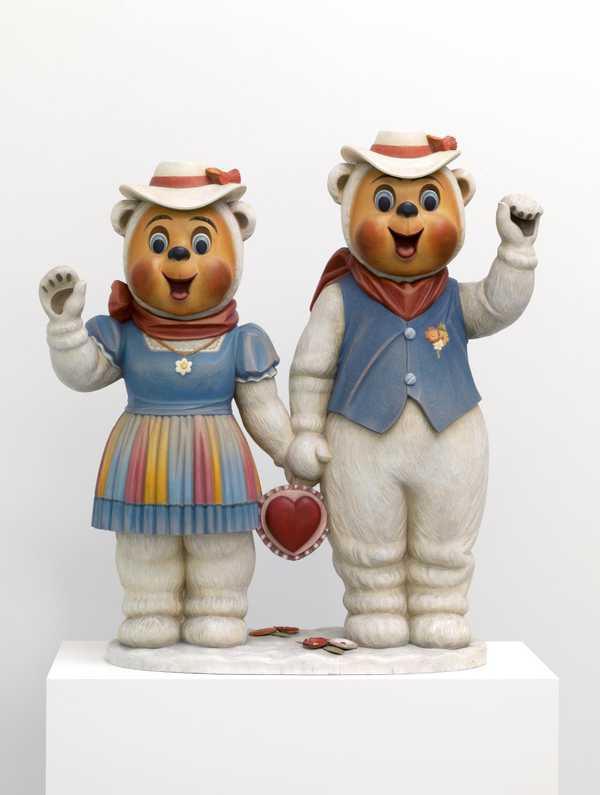Jeff Koons' "Banality" series, introduced in 1988, represents a pivotal moment in his career, marking his deep dive into the intersection of popular culture and high art. This series includes sculptures made from porcelain, ceramics, and painted wood, parodying traditional Hummel figurines while incorporating pop culture icons and animal figures. The "Banality" series stands out for its critique of consumer culture and the art world's commodification, blending kitsch aesthetics with a nuanced commentary on taste, elitism, and mass appeal. Works from this series, such as "Pink Panther" and "Michael Jackson and Bubbles," are notable for their polished craftsmanship and their provocative merging of eroticism, innocence, and celebrity culture. These pieces have been both celebrated and critiqued for their overt commercialism and for challenging traditional boundaries of artistic expression (Artland Magazine) (Wikipedia).
The series also sparked legal controversies over copyright issues, most famously with the sculpture "String of Puppies," based on a photograph by Art Rogers. Koons' unabashed appropriation of existing imagery led to several lawsuits, underscoring the legal and ethical tensions between artistic borrowing and copyright infringement within the postmodern art landscape. Despite these challenges, or perhaps because of them, the "Banality" series cemented Koons' reputation as a critical and polarizing figure in contemporary art, one who deliberately blurs the lines between high and low culture to provoke and challenge viewers' perceptions (Wikipedia) (The Art Story).
Koons' work during this period reflects a broader narrative within the art world concerning the role and value of art in a consumer-driven society. By elevating kitschy figurines and pop icons to the status of high art, Koons questions the hierarchies that govern taste and artistic merit. His work in the "Banality" series invites audiences to consider the beauty in the banal and the profound in the profane, pushing the boundaries of what is traditionally considered worthy of artistic celebration (Encyclopedia Britannica).


